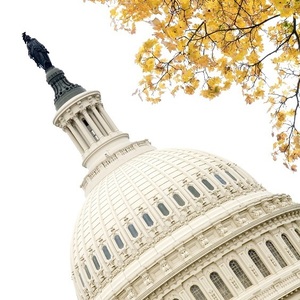Build Back Better Act benefits biofuels industry

October 28, 2021
BY Erin Krueger
President Biden and Congressional leaders on Oct. 28 released a proposed Build Back Better budget reconciliation framework that includes nearly $1 billion for biofuels infrastructure, a four-year extension of the biodiesel tax credit and a new tax credit for sustainable aviation fuel (SAF).
One section of the nearly 2,500-page proposed bill allocates $960 million through Sept. 30, 2031, to provide competitive grants to install, retrofit, or otherwise upgrade fuel dispensers, storage tank components and other infrastructure required to supply fuel ethanol blends of greater than E10 and biodiesel blends of greater than B20. The funds can also be used to retrofit certain distribution systems for these fuels, including rail lines and home heating oil distribution centers. Fueling stations, convenience stores, fleet facilities, terminal operators, mid-stream partners and heating oil distribution facilities are among the entities eligible for the grant program.
The bill also currently includes extensions of the biodiesel and renewable diesel tax credit and the second-generation biofuel production tax credit. In addition, the legislation creates a new tax credit for SAF. The SAF credit begins at $1.25 per gallon with an extra 1 cent per gallon for each percentage point by which the lifecycle greenhouse gas (GHG) emissions reduction percentage with respect to such fuel exceeds 50 percent.
Advertisement
Advertisement
Rep. Cindy Axne, D-Iowa, issued a statement touting the biofuel provisions included in the proposed package. “Not only does the Build Back Better Act represent the largest investment in clean energy and combating climate change ever – it also confirms that my colleagues have listened to my central argument in our clean energy discussions: biofuels can and should be a part of our fight against climate change,” Axne said. “For months, I have been helping members of the administration, the Senate, and my own colleagues in the House understand the key advantages of biofuels – from the fact that it’s been proven to be more than twice as clean as fossil fuels to how much it can help the economies of states like Iowa. And now I will continue working to get these investments to the President’s desk.”
Growth Energy has issued a statement in support of the bill’s biofuel infrastructure provisions. “President Biden’s proposal to invest $1 billion in biofuels infrastructure is a welcome acknowledgment from this administration that access to higher blends of biofuels at the pump makes a real difference in decarbonizing transportation,” said Emily Skor, CEO of Growth Energy. “Recent research shows that a nationwide E15 standard would reduce CO2 emissions by more than 17.62 million tons – the equivalent of taking 3.85 million cars off the road each year. Investing in fuel infrastructure that allows more American drivers to fill up on low-carbon biofuel blends, like E15, is crucial to helping our nation achieve our clean energy goals today.”
Advertisement
Advertisement
Related Stories
The U.S. Energy Information Administration maintained its forecast for 2025 and 2026 biodiesel, renewable diesel and sustainable aviation fuel (SAF) production in its latest Short-Term Energy Outlook, released July 8.
XCF Global Inc. on July 10 shared its strategic plan to invest close to $1 billion in developing a network of SAF production facilities, expanding its U.S. footprint, and advancing its international growth strategy.
U.S. fuel ethanol capacity fell slightly in April, while biodiesel and renewable diesel capacity held steady, according to data released by the U.S. EIA on June 30. Feedstock consumption was down when compared to the previous month.
XCF Global Inc. on July 8 provided a production update on its flagship New Rise Reno facility, underscoring that the plant has successfully produced SAF, renewable diesel, and renewable naphtha during its initial ramp-up.
The U.S. EPA on July 8 hosted virtual public hearing to gather input on the agency’s recently released proposed rule to set 2026 and 2027 RFS RVOs. Members of the biofuel industry were among those to offer testimony during the event.
Upcoming Events










